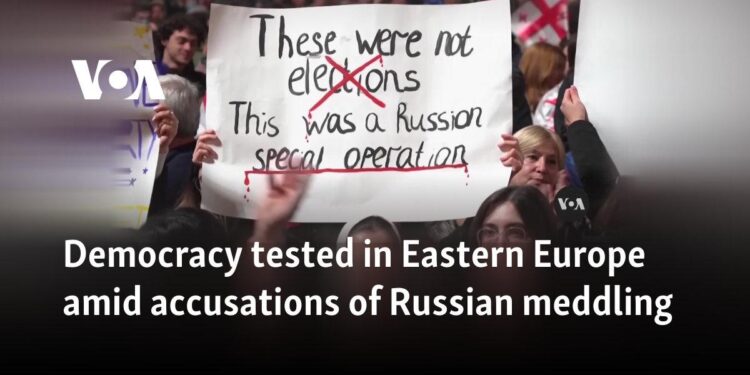In a candid interview with Balkan Insight, Moldova’s Minister of Defense detailed the country’s strategic approach to countering persistent Russian interference, suggesting that these tactics could serve as a valuable model for the European Union. As Moldova faces ongoing political and informational challenges stemming from Moscow’s influence, its proactive measures offer fresh insights into safeguarding democratic institutions in the region. This article explores the minister’s perspective on how Moldova’s experience might inform broader EU efforts to resist foreign meddling.
Moldovan Minister Details Strategies to Counter Russian Influence in Eastern Europe
In a recent statement, Moldova’s Deputy Prime Minister outlined a comprehensive framework aimed at curbing Russian interference across Eastern Europe. Central to these efforts is the strengthening of media literacy initiatives designed to shield the public from disinformation campaigns. The strategy also prioritizes enhanced cooperation with regional allies to monitor and respond swiftly to hybrid threats, ranging from cyberattacks to political destabilization tactics. By fostering transparent governance and promoting civic engagement, Moldova seeks to build resilience at both institutional and grassroots levels.
Key components of Moldova’s multifaceted approach include:
- Empowering independent media outlets through funding and legal protections
- Expanding digital security infrastructure to safeguard critical communications
- Establishing rapid response teams for coordinated countermeasures
- Strengthening cross-border intelligence sharing with EU partners
| Strategy | Focus Area | Expected Outcome |
|---|---|---|
| Media Literacy Campaigns | Public Awareness | Reduced Disinformation Impact |
| Cybersecurity Upgrades | Digital Infrastructure | Enhanced Network Protection |
| Regional Intelligence Sharing | Diplomatic Relations | Improved Threat Detection |
| Independent Media Support | Press Freedom | Transparent Information Flow |
Enhancing EU Security Through Robust Cyber Defense and Information Campaigns
Moldova’s recent success in tackling interference from Russia serves as a significant case study for the EU’s ongoing struggle to safeguard its digital borders and societal cohesion. By introducing multi-layered cyber defense mechanisms combined with proactive information campaigns, Moldovan authorities have effectively mitigated disinformation waves designed to destabilize democratic processes. Their approach blends real-time monitoring of cyber threats with targeted public awareness efforts that debunk false narratives before they take root, an approach the EU is keen to replicate across member states.
Key elements of this strategy include:
- Rapid response teams coordinating across national and European agencies to counteract hacking attempts.
- Engagement with civil society to foster resilience against misinformation campaigns.
- Investment in AI-powered tools for identifying and flagging suspicious content.
- Public transparency initiatives that increase trust in official sources.
| Tactic | Purpose | Impact |
|---|---|---|
| Cyber threat monitoring | Early detection of cyberattacks | Reduced breach incidents |
| Disinformation workshops | Public education on fake news | Increased public skepticism of false information |
| Disinformation workshops | Public education on fake news | Increased public skepticism of false information |
| Cross-border agency cooperation | Enhanced coordination on cyber threats | Improved response times and effectiveness |
| Cooperation Area | Proposed Action | Expected Outcome |
|---|---|---|
| Information Sharing | Secure real-time data exchange | Rapid threat identification |
| Joint Training | Simulated interference response drills | Unified tactical approach |
| Legal Cooperation | – Summarize the entire section. |
















